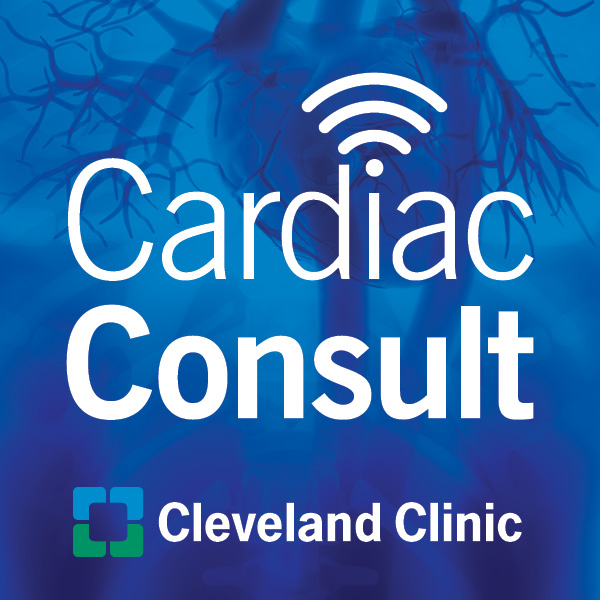Testosterone Replacement Therapy in Patients with Low Testosterone: Findings from TRAVERSE Trial

A Cleveland Clinic-led trial found that testosterone-replacement therapy did not result in a higher incidence of major adverse cardiac events in middle-aged and older men with hypogonadism (also known as low testosterone) who also had preexisting or a high risk of cardiovascular disease. However, researchers still urge caution when considering testosterone therapy. Dr. Steve Nissen discusses the results of the TRAVERSE trial.
Learn more about clinical trials in the Heart, Vascular and Thoracic Institute at Cleveland Clinic
Subscribe: Apple Podcasts | Buzzsprout | Spotify
Testosterone Replacement Therapy in Patients with Low Testosterone: Findings from TRAVERSE Trial
Podcast Transcript
Announcer:
Welcome to Cleveland Clinic Cardiac Consult, brought to you by The Sydell and Arnold Miller Family Heart, Vascular and Thoracic Institute at Cleveland Clinic.
Steven Nissen, MD:
I'm Dr. Steve Nissen. I'm the Chief Academic Officer of the Heart, Vascular and Thoracic Institute at Cleveland Clinic. I'd like to talk to you today about the TRAVERSE trial. This was a study recently published in the New England Journal of Medicine that had the long-awaited data on the cardiovascular safety of testosterone replacement in men with hypogonadism. This study was conducted as a consequence of a mandate from the Food and Drug Administration to the makers of testosterone. The FDA was concerned because there was some preliminary data that suggested that testosterone may have adverse cardiovascular effects, specifically that it could increase the risk of heart attack or stroke.
The study involved randomization of about 5,200 men between the ages of 45 and 80. They had to have documented low testosterone levels, less than 300 nanograms per deciliter on two separate occasions obtained in the morning, which is the proper time to draw a testosterone level. If their level was low and they had associated symptoms such as impaired sexual function, easy fatiguability, loss of hair in their beards and other places that are known to be related to testosterone, they had to have some of those symptoms to get into the trial. The randomization was to a placebo or testosterone gel delivered transdermal, 1.62 percent testosterone. Then patients were followed, and their testosterone blood levels were checked, and the dose was adjusted to get them into the normal range of 350 to 750 nanograms per deciliter.
The primary endpoint of the trial was a non-inferiority endpoint that collected events of death from cardiovascular causes, non-fatal myocardial infarction or non-fatal stroke. Patients were treated for an average of 21.7 months and followed for a median of 33 months. At the end of the trial when we were unblinded, we learned that a primary endpoint had occurred in 7 percent of patients in the testosterone group and 7.3 percent of patients in the placebo group. That was a neutral hazard ratio of 0.96 and the upper confidence interval was 1.17. The FDA required an upper confidence interval of less than 1.5 for a declaration of non-inferiority, and that upper confidence interval was easily met.
So, what did we learn from the trial? Well, we learned that testosterone administration to men with hypogonadism, well-documented and titrated carefully to obtain normal testosterone levels, that in that setting, testosterone administration is safe. We did not study the use of testosterone outside of this very clearly defined patient group, and we caution that testosterone should not be used by athletes or bodybuilders. It should not be used by men who do not have documented low testosterone levels. And it needs to be administered by someone with experience in treating hypogonadism. Generally, that's an endocrinologist or a urologist, but it can be others, and the patients be followed very closely.
We did see an increased risk of atrial fibrillation and thromboembolic events. There was a numerical excess of pulmonary emboli and other peripheral venous thrombosis events. So, testosterone should be used cautiously in patients with these conditions. However, overall, the cardiovascular safety of testosterone was confirmed in the TRAVERSE trial, and we think it should guide informed discussions between patients and providers about the optimal use of testosterone.
Announcer:
Thank you for listening. We hope you enjoyed the podcast. We welcome your comments and feedback. Please contact us at heart@ccf.org. Like what you heard? Subscribe wherever you get your podcasts or listen at clevelandclinic.org/cardiacconsultpodcast.

Cardiac Consult
A Cleveland Clinic podcast exploring heart, vascular and thoracic topics of interest to healthcare providers: medical and surgical treatments, diagnostic testing, medical conditions, and research, technology and practice issues.



